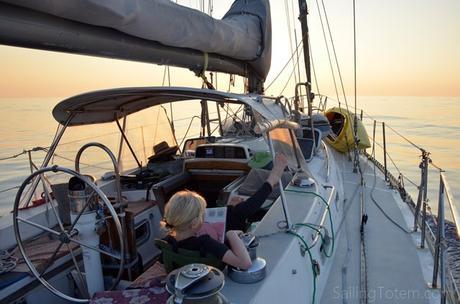
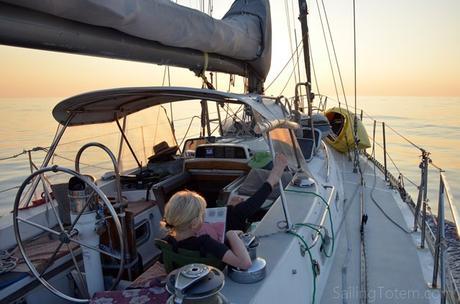
“But what about socialization?” People unfamiliar but curious about cruising lifestyle often ask this about our children. We’ve done a few presentations about our travels during our first month back in the USA, and can almost guarantee the question of our kids’ socialization will come up in the Q&A afterwards.
Tucked into comfortable chairs on a friend’s porch last week, we compared notes on our two families’ cruising experiences. The Reys have alternated cruising their classic Huckins, Cordado, with travels to Europe—building worldschooling experiences for their kids while staying close to Tony’s work. A dozen yards away, our collective tribe of six kids aged 11 to 17 laughed over a Harry Potter trivia game before abandoning the porch to play basketball in the driveway. Listening to them shoot hoops by headlights in the fading light, these kids easily interacted across a wide age range, weren’t phased by gender, and were not reticent to engage adults (or other kids more than a couple of years apart in age). It’s one example, but it’s typical, and seems to me they’re pretty well socialized.
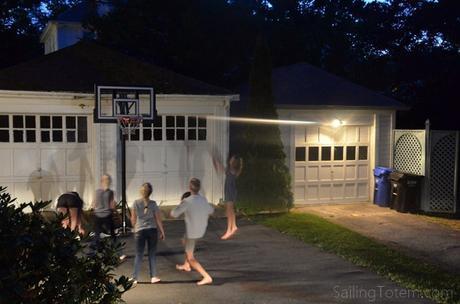
The only problem with cruising kids and socialization is that the myth they will be inadequately socialized persists.
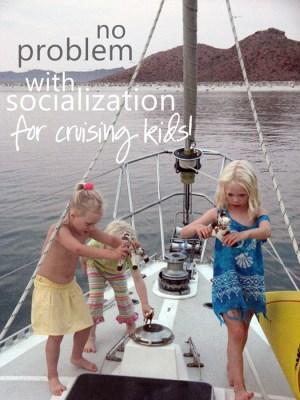
Playing “horsies” on the bow with Zada: Mexico, 2009
By flickering candlelight, we muddled over the subject of socialization. Lynne & Tony’s response is one of my favorites, too. They like to return a different question: “How did you like junior high school? What about high school?” for most of us, those weren’t overwhelmingly positive social experiences, except maybe with rose-tinted hindsight. Why not just skip over a whole pile of angst while raising and educating kids who are self-confident and secure?
I like to flip this question another way, too. Why is it presumed better socialization to put a couple of dozen kids the same age into a classroom with a single adult? Does a narrow band of peer-dominated socialization provide optimal social growth? I don’t think so, and research agrees.
The question generally comes from unaware curiosity. I suspect we are imagined off in the middle of nowhere, alone in our travels, interacting overwhelmingly just within our family unit. It’s sometimes true, but it’s the exception. Most of our time is spent “somewhere,” among the company of other cruising families on an extended field trip. Our kids have to work out conflicts, and appreciate the value of friendships. They more frequently face the social challenge to make new friends. They readily engage others across age and gender, and their communication benefits from routinely socializing with adults. Everyday life informs them about the “real world.”
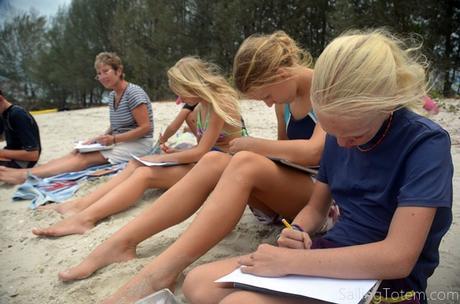
cruising kids gather for a group sketching session – Malaysia, 2014
It does take work to place yourself in the company of other kid boats. On a Facebook forum for cruising families recently, one parent wondered why, after months in the popular cruising grounds of the Bahamas, they did not encounter a single cruising family. As newbie cruisers, this family didn’t realize you can’t expect it to happen organically: it takes some effort, some advance research and contacts. And then, you have to be flexible in your plans. (How to do this another story, and a section of Voyaging with Kids is devoted to the topic.)
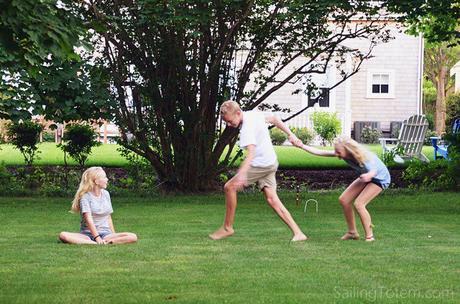
Rough housing on a lawn in Nantucket: July, 2016
Being solo is fine for a while—months, even. But it can be tough over time, especially for singleton kids. It’s changed our routing plans many times, in big and small ways. We’ve seen the need for their child to be among a larger peer group push families to stop cruising altogether. I’m sure the fact our kids have each other as peers and playmates has made our stretches away from other cruisers easier.
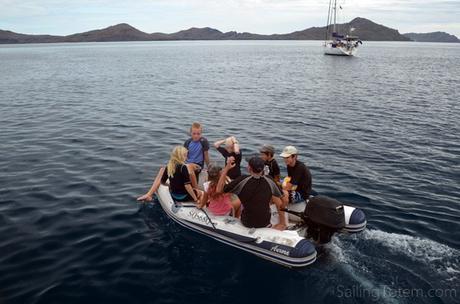
Kids jetting off on adventures! Comoros, 2015
In fact, there are a lot of other cruising families “out there,” and our kids get to hang out with other kids most of the time. I expect it to be harder the next few years, because older boat kids are less common: the sweet spot seems to be from around 6 to 12. (I’m still amazed that we managed to be around a more than a dozen of tween and teen cruisers during our Indian Ocean crossing year!) It will take effort to find and connect with other kids, unless we make the tradeoff to go our own way.
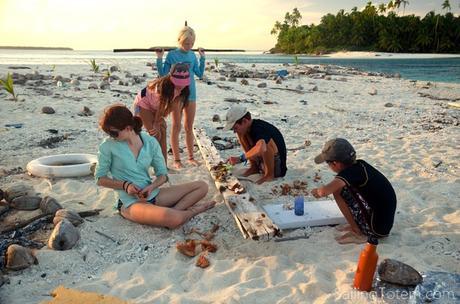
Kids from three boats prep a foraged dinner: Indian Ocean, 2015
This paints a rosy picture. Socialization is more multidimensional, and about individual personalities as well as environment. But our kids are growing as social beings in a very different way than their peers at home. We have to be open with them about these differences, so they don’t expect seamless interactions now, or transitions later. They are largely outsiders to mainstream culture. They don’t know the names of the latest celebrity newsmakers, musical hits, or fashion trends. But for the most part, it’s because they don’t care: they’re not in a bubble, and they can find these things online, and choose what’s important to them to follow.
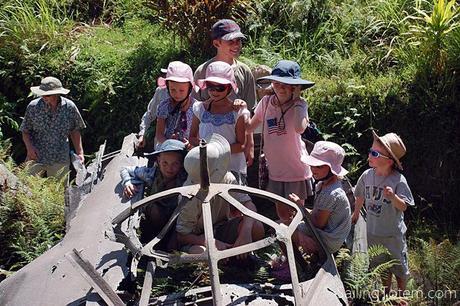
Boat kids e.Exploring WWII wrecks: Rabaul, PNG, 2012
It’s intimidating to make the leap to raise children differently, and we’ve gone WAY off the path of the norm. Back on Lynne & Tony’s porch, I think about hearing the “what about socialization?” question, and how it makes my mama bear hackles come up, ready to defend my cubs. I have to remember, it’s not negative judgment—just a lack of understanding. Our differently socialized kids are doing fine, thank you.
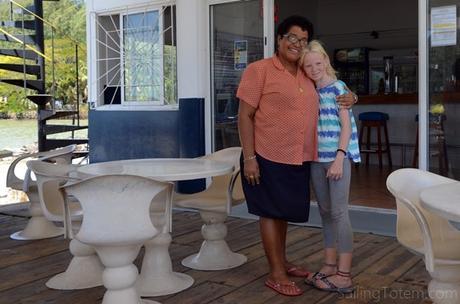
Making an impression at the Seychelles Yacht Club, 2015

